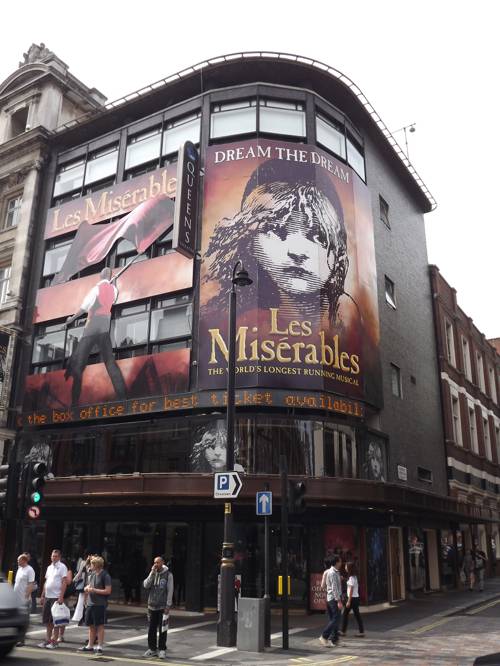
FAQ About Adaptation of Classic Novels into Musical Theatre

What is involved in adapting a classic novel into a musical theatre production?
Adapting a classic novel into a musical theatre production involves several key stages. Initially, the creative team must select the right novel that offers strong characters, plot, and themes suitable for musical dramatization. Following this, a book writer crafts the script, a composer and lyricist create the music and songs, respectively, and a director guides the overall vision and execution of the production. Collaboration between all parties is crucial for maintaining the essence of the original work while transforming it into an engaging musical format.

Why are classic novels popular choices for musical theatre adaptations?
Classic novels are popular choices for musical theatre adaptations due to their enduring stories and well-developed characters that resonate with audiences across generations. These stories often tackle universal themes such as love, conflict, and morality, which translate well into the emotional medium of music and theatre. Additionally, classic novels come with an established audience familiar with the text and interested in seeing its new interpretation as a musical.

Can you give examples of successful musical adaptations of classic novels?
Several successful musical adaptations of classic novels include "Les Misérables," based on Victor Hugo's novel; "The Phantom of the Opera," inspired by Gaston Leroux's work; "Oliver!," adapted from Charles Dickens' "Oliver Twist"; and "Wicked," which draws from "The Wizard of Oz" by L. Frank Baum, though filtered through Gregory Maguire's "Wicked." These productions have gained critical acclaim and enjoyed significant commercial success, demonstrating the potential of classic literature in musical form.

How does the music in a musical adaptation enhance the storytelling of a classic novel?
The music in a musical adaptation enhances storytelling by adding emotional depth and dimension that dialogue alone might not convey. It allows characters to express inner feelings and conflicts through song, offers a dynamic way to advance the plot, and can set the emotional tone or atmosphere of a scene. Music also helps underscore motifs and themes of the original novel, making them more impactful and memorable for audiences.

What challenges do creative teams face when adapting novels into musicals?
The adaptation of novels into musicals presents several challenges. One major challenge is condensing the often complex and detailed narratives of novels into a two or three-hour stage production while maintaining fidelity to the original source's intent. Balancing the addition of new artistic elements like music and dance without overshadowing the novel's key themes is another difficulty. Moreover, satisfying fans of the original work while appealing to new audiences requires a delicate and thoughtful approach.

Do musical adaptations of novels typically remain faithful to the source material?
The fidelity of musical adaptations to their source material varies. Some adaptations remain closely aligned with the original narrative and characters, while others take significant creative liberties, introducing new characters, altering plot points, or emphasizing specific themes. The key is often in how these changes serve the musical storytelling medium and whether they retain the core essence of the novel's message.

How are characters from classic novels transformed in musical productions?
In musical adaptations, characters from classic novels are often expanded upon to take advantage of the musical performance format. This expansion can include changing some character traits to fit musical storytelling, providing deeper backstories through song, or highlighting specific internal conflicts. These musical interpretations can offer new dimensions to beloved characters, making them more relatable or adding dramatic flair.

Why do some classic novels fail as musical theatre adaptations?
Some classic novels fail as musical theatre adaptations for several reasons. Poor selections where the narrative doesn't naturally lend itself to musical exploration can lead to unsuccessful adaptations. Additionally, if the adaptation fails to balance music, story, and spectacle, the production may not resonate with audiences. Misalignment between creative vision and execution or lack of experienced support staff can also contribute to failure.

What influence do musical adaptations of novels have on contemporary storytelling?
Musical adaptations of novels influence contemporary storytelling by demonstrating the versatility and integration of various narrative forms. They showcase how elements of literature can be reimagined in modern contexts, encouraging fresh interpretations and hybrid storytelling techniques that blend dialogue, music, and visual artistry. These adaptations also bridge literary traditions with popular culture, perhaps inspiring new trends in both literature and theater.

How do adapters decide which parts of the novel to include in the musical?
Adapters decide which parts of a novel to include in a musical by focusing on the most crucial elements that drive the plot and character development. They aim to retain key scenes that encapsulate the novel's primary themes and emotional moments suitable for musical expression. The process often involves collaboration between writers, composers, and directors to ensure that these selected parts serve the overall artistic vision and are coherent within the flow of a musical performance.

Are there particular genres of classic novels that are more commonly adapted into musicals?
Genres such as romance, drama, and fantasy are commonly adapted into musicals because their emotive and imaginative elements are well-suited to musical storytelling. Historical novels, which often contain grand narratives and complex protagonists, also provide excellent material for adaptation due to their rich, immersive settings and epic storylines. These genres offer substantial content for musical reinterpretation, embracing both spectacle and depth in presentation.

How do the themes of a classic novel get interpreted in a musical adaptation?
Themes of a classic novel are interpreted in a musical adaptation through music, lyrics, and performance. Music helps underscore and emphasize the novel's themes, creating a particular emotional or philosophical impact. Lyrics can distill complex thematic elements into concise, poignant moments, and the visual and auditory elements combined can offer a fresh perspective, often highlighting or reinterpreting themes to suit contemporary sensibilities or the creators' vision.

What role do directors play in adapting novels into musicals?
Directors play a vital role in adapting novels into musicals as they oversee the entire creative process, ensuring the vision is coherent and compelling. They work closely with the creative team, guiding everything from casting to staging to ensure interpretation aligns with the intended artistic and narrative goals. Directors are instrumental in bringing the written and musical elements together in a manner that remains faithful to the source material while making the experience engaging and impactful for the audience.

How do musical adaptations affect the legacy of the original classic novel?
Musical adaptations can significantly influence the legacy of a classic novel by introducing it to new audiences and keeping the story relevant in contemporary culture. Successful adaptations often reignite interest in the original work, potentially increasing sales and academic analysis. However, they can also overshadow the novel if audiences become more familiar with the adaptation than the book itself. The adaptation may add layers to the novel's cultural significance, contributing to its enduring legacy.

Can a musical adaptation change the public perception of a classic novel?
Yes, a musical adaptation can change the public perception of a classic novel by highlighting different aspects of the story or characters, thus offering new interpretations. For instance, alterations in a character's portrayal through music or added scenes can shift audience perceptions regarding motives or themes. The infusion of contemporary musical styles and themes into a classic narrative can also alter its reception and related cultural dialogues, influencing how the novel is viewed in modern times.

How important is collaboration among creative professionals in adapting novels into musicals?
Collaboration among creative professionals is crucial when adapting novels into musicals. Successful productions require the synergistic integration of writing, music composition, choreography, visual design, and direction. Each professional brings unique expertise and perspective, crafting a cohesive and dynamic theater experience. Open communication and mutual respect among these creatives are essential for capturing the novel's spirit while innovating for the stage.

What criteria are used to select a classic novel for adaptation into a musical?
Criteria for selecting a classic novel for musical adaptation include the presence of compelling characters, a well-structured plot, and themes that resonate emotionally or socially. Novels with inherent dramatic tension and potential for strong musical moments are often prioritized. The chosen work should offer adaptability to the stage—an ability to be transformed into song and dance without losing essence, while also having a timeless appeal that encourages audience engagement.

How does the historical context of a classic novel impact its adaptation into a musical?
The historical context of a classic novel impacts its adaptation into a musical by providing a framework for setting, character motivation, and thematic focus. Adapters must decide whether to preserve the original time period or modernize it to make themes more accessible to today's audiences. Events or societal norms from the novel’s time might be highlighted or altered to reflect contemporary values or enhance dramatizations, providing unique challenges and opportunities in musical adaptation.

Are there elements of classic novels that are typically altered in musical adaptations?
Yes, elements of classic novels—such as plot pacing, character focus, and setting—are often altered in musical adaptations. These changes are made to streamline the storyline for the stage and highlight musical moments. Secondary characters might be combined or omitted to tighten the narrative, and certain subplots might be simplified or expanded to serve the musical's rhythm and flow. The objective is to create a cohesive production that respects the source material while engaging audiences effectively.

What techniques are used to ensure a musical adaptation stays true to a classic novel?
Techniques used to ensure a musical adaptation stays true to a classic novel include maintaining the core themes and message, careful character portrayal, and faithful narrative structure, even within adaptive changes. Consultations with literary experts, detailed analysis of the source material, and constant revision by the creative team ensure respect for the novel's essence. Keeping a balance between originality in interpretation and loyalty to the original is key in these adaptations.
